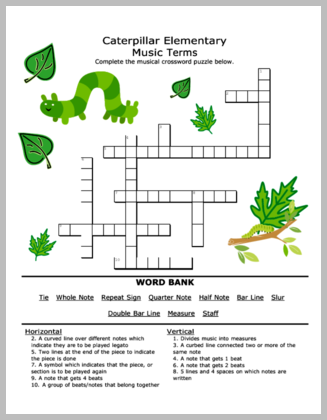
Provide students with a fun and exciting way to practice elementary theory terms. This crossword puzzle includes 10 early elementary music terms and definitions — tie, whole note, repeat sign, quarter note, half note, bar line, slur, double bar line, measure and staff.